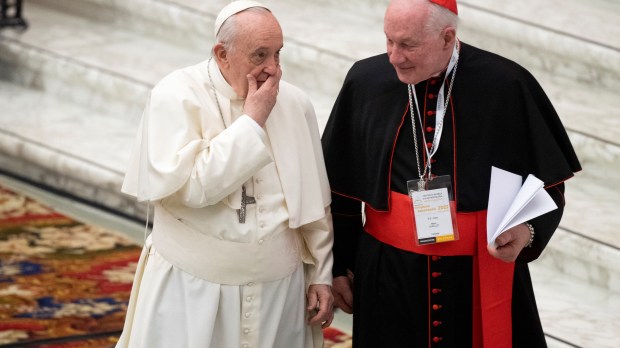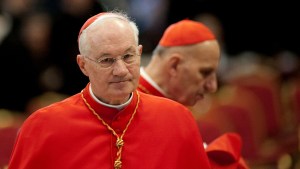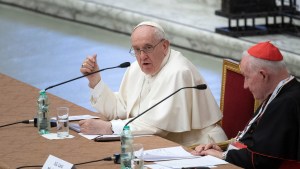“Pope Francis declares that there are not sufficient elements to open a canonical investigation for sexual assault by Cardinal Ouellet against the person F.,'” announced a statement signed by the director of the Holy See Press Office, Matteo Bruni, on August 18, 2022. The pope’s response follows the August 16 filing of a class-action lawsuit in Canada that includes testimony accusing Cardinal Marc Ouellet of sexual assault between 2008 and 2010.
In the press release, Bruni explains that in making his decision, Pope Francis chiefly relied on the conclusions of a preliminary investigation, which he had requested from Father Jacques Servais, S.J.. The results of this investigation showed that “there are no grounds to initiate a process against Cardinal Ouellet for sexual assault.”
The spokesman explained that Pope Francis consulted Father Servais again and received this confirmation: “There are no grounds to open an investigation into the sexual assault undergone by person ‘F.’ by Cardinal M. Ouellet. Neither in the written report sent to the Holy Father, nor in the testimony via Zoom that I subsequently gathered in the presence of a member of the Diocesan Ad Hoc Committee, did this person make any accusation that would provide grounds for such an investigation.”
To support his decision not to open an investigation, Pope Francis also conducted “other relevant consultations,” the statement said.
Target of a class action lawsuit
Cardinal Marc Ouellet, prefect of the dicastery for bishops, is among the targets of a class action authorized by the Superior Court of Quebec last May and led by Arsenault Dufresne Wee Avocats. It groups 101 victims who claim they were assaulted by approximately 88 priests or persons of the diocese between 1940 and today.
The name of the former Archbishop of Quebec is among these 88 people. One woman — who remains anonymous and is referred to as F — claims that the cardinal held her close, massaged her shoulders, and vigorously caressed her back “down to where the buttocks are joined,” between 2008 and 2010 when she was an intern.
When she reported her discomfort years later to the Quebec Diocese’s sexual abuse advisory committee — without naming her alleged assailant — the council acknowledged that if the alleged activity would have occurred, it would constitute sexual assault, and advised her to refer the matter to Pope Francis.
The Vatican was informed of the case in January 2021. Father Jacques Servais, a Jesuit theologian trusted by the pope, was chosen to conduct a preliminary investigation. Matteo Bruni’s statement explains that the investigation did not reveal any grounds for a canonical investigation for sexual assault.
Pope Francis’ clear response, which comes less than 48 hours after the allegations against Cardinal Marc Ouellet were made public, shows a willingness to cut short rumors of mismanagement of this affair by the Vatican and the pope himself.



